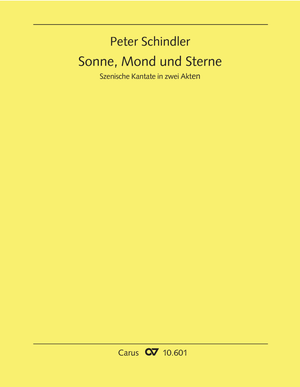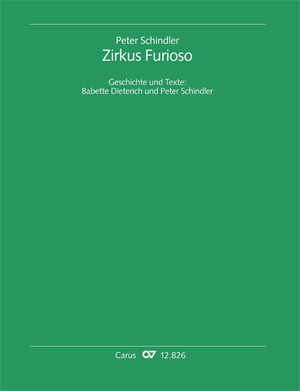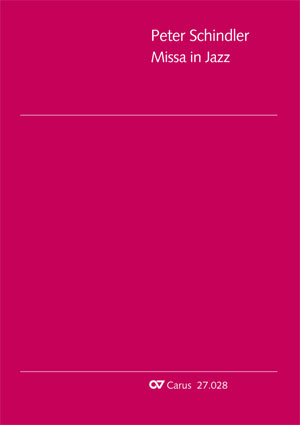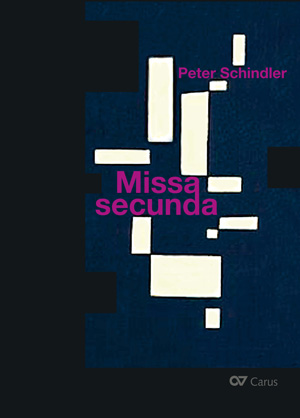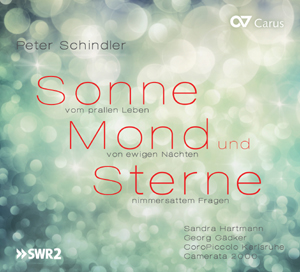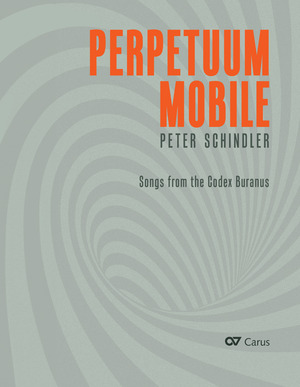
Perpetuum mobile
Songs from the Codex Buranus
The Codex Buranus, the famous collection of medieval poems and dramatic texts from Benediktbeuern Monastery, still contains many intriguing secrets today. Who wrote the texts, for which occasions, and above all, for whom? In his work Perpetuum mobile composer Peter Schindler has set 44 texts from the Codex to create a new 90-minute song cycle in 4 acts for soloists, chorus, jazz quartet and string ensemble (ad lib.).
The message
The title reflects the overall concept of the work: the Creation set in motion the formation of the world, which remains in motion for ever. All the events recur in ever-new variations.
The music
The music uses many different styles. Homophonic movements and fugues are found alongside pop and jazz-inspired pieces. Echoes of the Notre Dame style can also be heard, with influences from organum and writing in parallel fifths. The songs are for four-part mixed choir, soprano and baritone soloists, and a jazz quartet. A string ensemble can be added to this line-up.
The texts
The 315 songs and dramatic texts from the 13th century were published completely for the first time in 1847 in an edition entitled “Lieder aus Benediktbeuern” – in Latin: Carmina burana. The contents include moral-satirical songs, spring and love songs, medieval courtly songs, and sacred dramas. The Codex Buranus is recognized as an international cultural treasure. Its importance lies in the international range of the collection, which extends beyond linguistic and cultural boundaries. It continues to impress today as an invaluable testimony to medieval culture and European history, for the texts remain breathtakingly true to the present day.
Since its rediscovery the multi-faceted texts have continually been set anew: The Allgemeines Deutsches Kommersbuch of 1895 included the drinking song “Ecce gratum et optatum”. Carl Orff came across the texts in 1935 and reworked them into his choral work of the same name. Other ensembles working in the historical performance practice tradition have endeavored to make reconstructions of the original melodies from the fragmentary surviving neumatic notation. Peter Schindler’s composition is a new musical approach to the multi-layered Latin poems in a 21st century musical language.
The audio samples below are excerpts from the world premiere of the work on 14 November 2021 in the Mozartsaal of the Liederhalle in Stuttgart. The performers are Jochen Woll (conductor), Giorgia Cappello (soprano), Felix Rumpf (baritone), Peter Lehel (saxophone), Markus Faller (percussion), Dirk Blümlein (bass), the Kammerchor Baden-Württemberg and the Kurpfalzphilharmonie. The composer Peter Schindler sits at the piano.
Contents
-
Composer
Peter Schindler
| 1960Composer, pianist and organist Peter Schindler writes and performs music for ballets and theatrical performances, films and dramatic recordings, instrumental and choral arrangements, chansons and sacred works. He is particularly passionate about his compositions for children and young adults, which has come to comprise hundreds of humourous children’s songs (Kinderhits mit Witz). His full-length musicals include Geisterstunde auf Schloss Eulenstein (Witching Hour at Eulenstein Castle), Max und die Käsebande (Max and the Cheese Gang), König Keks (Cookie King), Zirkus Furioso (Circus Allegro), and SCHOCKORANGE. These musicals are some of the most frequently played pieces of their kind by children’s and youth choirs in German-speaking theaters and schools. With his first English musical Circus Allegro, Peter’s hugely sucessful work for all kids under 100 is now also accessible to audiences around the world. Personal details
Frequent questions about this work
Are the parts for jazz quartet (piano / soprano sax / bass / perc) written out?
Is this a sacred or secular work?
Are there translations of the Latin texts?
Can the "Perpetuum mobile" only be performed in its entirety or is it also possible to sing excerpts?
Where does the title "Perpetuum mobile" come from?
Can the texts and cover be downloaded for a program booklet?
What is special about the Codex Buranus and where was it created?
Can we invite the composer to lead a workshop / rehearsal weekend?
 There are no questions and answers available so far or you were unable to find an answer to your specific question about this work? Then click here and send your specific questions to our Customer Services!
There are no questions and answers available so far or you were unable to find an answer to your specific question about this work? Then click here and send your specific questions to our Customer Services!






